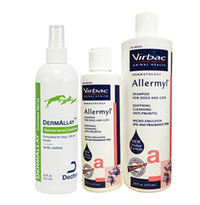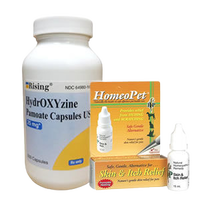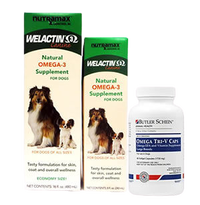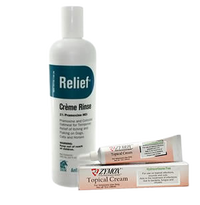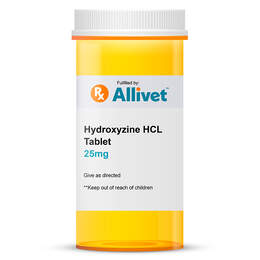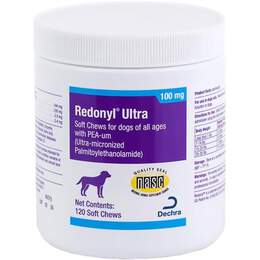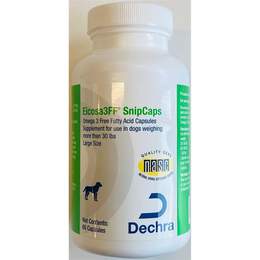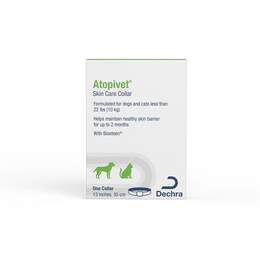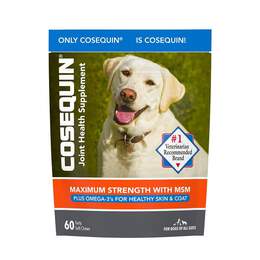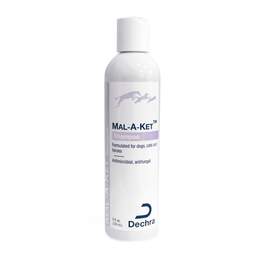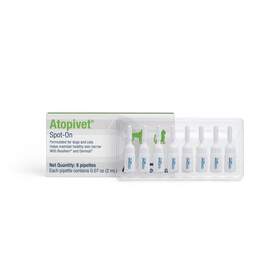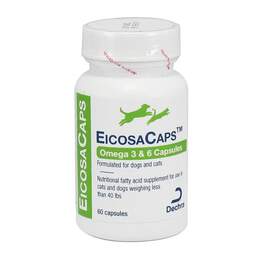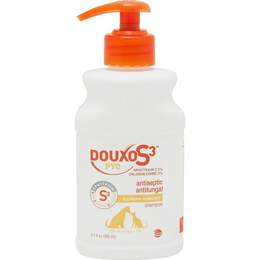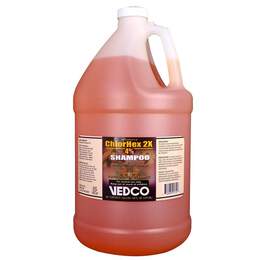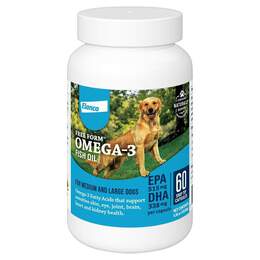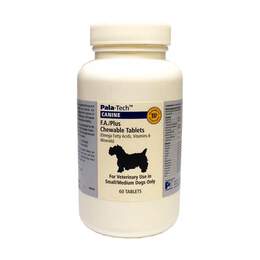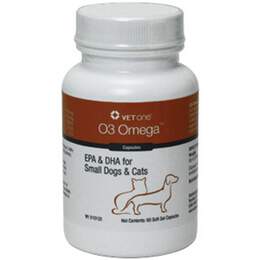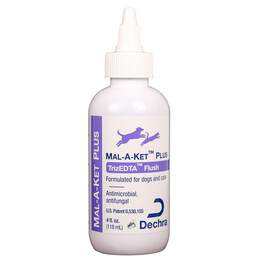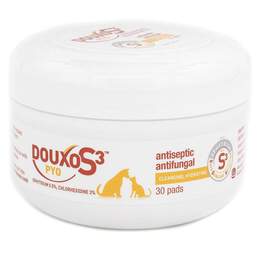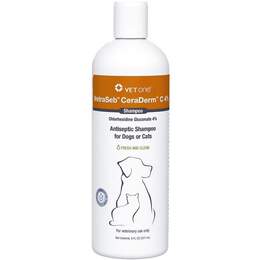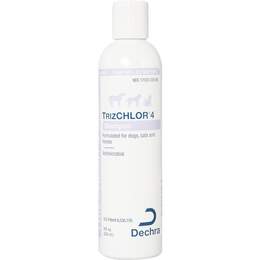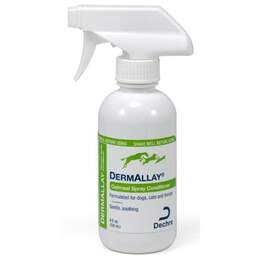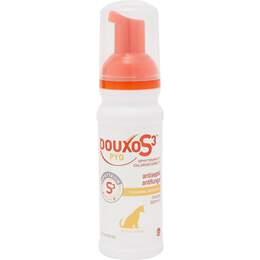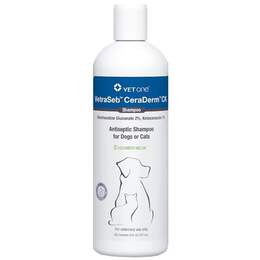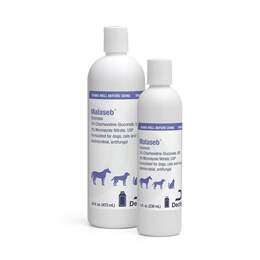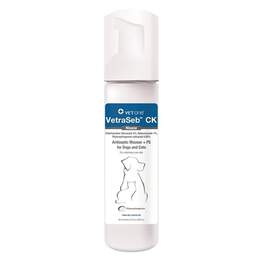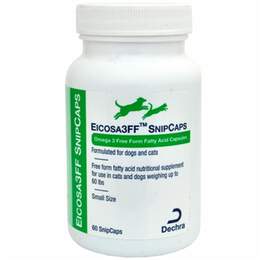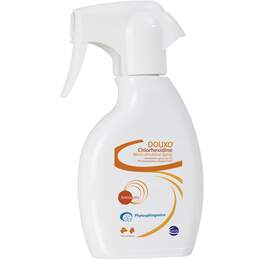Allergy Medicine for Dogs
Featured Categories
HOW DO YOU TREAT A DOG WITH ALLERGIES?
Allergies are one of the most common issues affecting dogs across the country. A problem to which pet parents can relate, allergies can affect your dog’s daily routine and their overall quality of life. Whether your dog is facing environmental allergies, skin allergies, or food allergies, Allivet has you covered with options for allergy medicine for dogs.
While the symptoms of allergies can be numerous, some of the most common signs are itchiness, hives, redness, sneezing, swelling in the face (ears, lips, eyes, etc.), itchy or runny eyes, and licking. If you think your dog is suffering from allergies, speak with your veterinarian about which allergy medicine is best for dogs.
SKIN CONDITIONS CAUSED BY ALLERGIES
When we have an allergic reaction, we generally cough, wheeze or break out in hives. Dogs, on the other hand, are more likely to react with skin conditions. Dogs have a higher proportion of mast cells in their skin, and these cells control the release of histamines and other substances that cause skin reactions when faced with an allergen. The most common causes of allergy-induced skin conditions are flea and insect saliva, food, inhaled allergens, and contact allergens. Allergy medicine for dogs can help relieve the symptoms of skin conditions caused by allergies.
FLEA AND INSECT ALLERGIES
A flea allergy is not a reaction to the flea but to the proteins in the flea’s saliva. When fleas feed on a dog, they inject a bit of their saliva into the skin. If the dog is sensitive to the proteins in the saliva, it will cause an intensely itchy reaction that can last for up to five to seven days. If your dog is sensitive to flea saliva, it only takes one bite to cause a reaction. The dogs most prone to a response are generally not dogs that have a lot of fleas but those who rarely get them.
Because the reaction lasts so long, it doesn’t take many fleas to make a dog miserable. Although other insects such as ants, spiders, mosquitoes, bees, wasps, and hornets can also cause reactions, flea saliva is far and away the most common insect allergen in dogs. Year-round flea control can help keep your dog from reacting to flea saliva. Veterinarians often prescribe corticosteroids or antihistamines for dogs with severe itching.
INHALANT ALLERGIES (ATOPY)
Inhalant allergens include tree, grass, and weed pollens, mildew, molds, and dust mites. Many inhalant allergens are seasonal, such as pollen, while others can occur year-round, such as mildew, mold, and dust mites. Inhalant allergies usually present as irritated, itchy skin, a condition called inhalant allergic dermatitis. If your dog is suffering from this condition, they may lick their feet, rub their face, and scratch under their forelegs.
Most dogs who suffer from inhalant allergies begin to show signs between one and three years of age. They will often react to several of the allergens mentioned and may also have flea or food allergies. Because the cause is environmental and challenging to pinpoint, veterinarians often prescribe allergy meds for dogs either seasonally or year-round to control the symptoms.
FOOD ALLERGIES
When dogs begin to show signs of itchy, irritated skin, many pet parents don’t realize that a food allergy may be the culprit since their pet has probably been fed the same food for most of its life. However, dogs can develop sensitivities or allergies to food over time and at any age, so just because their diet hasn’t changed doesn’t mean food allergies aren’t the cause of their skin issues.
Many people think that poor quality food is the cause of a food allergy, however, it is a specific ingredient that is responsible, not the quality or price of the food. Since common fillers often cause allergic reactions, and since premium foods may avoid using these fillers, they may cause fewer reactions.
A food allergy or hypersensitivity can be caused by any carbohydrate or protein in a dog’s food. The most common ingredients associated with allergies are dairy products, wheat gluten, beef, chicken, lamb, chicken eggs, and soy. Finding the source of the allergy involves an elimination diet to single out the problematic ingredient.
CONTACT ALLERGIES
The least common allergy in dogs, contact allergy, results from direct contact with allergens, such as pesticides used on lawns or materials such as synthetics or wool used in bedding or carpets. This type of allergy can develop at any age. If your dog has developed a contact allergy, you will see skin irritation at the point of contact, generally the stomach or feet. Finding and removing the allergen usually solves the problem.
ALLERGY MEDICINE FOR DOGS TO RELIEVE DISCOMFORT
If you notice allergy symptoms in your dog, make an appointment with your veterinarian to identify the cause of your dog’s discomfort and find the best allergy medicine to give them some relief. If allergies are left untreated, secondary infections and wounds may occur, which will increase your dog’s itching and discomfort.
Your veterinarian will examine your dog to see the extent and severity of their symptoms and may run a blood or skin test to identify the reason for their allergic reaction. Once your dog’s allergy triggers are identified, your veterinarian will outline a treatment plan to help your dog feel better. Veterinarians generally take a multi-pronged approach to resolving dog allergies.
First, they will make your dog feel better, either with a prescription or over-the-counter allergy medicine for dogs to help clear up the symptoms. If your dog has a secondary bacterial infection, they will also prescribe treatment to clear it up.
MEDICATED SHAMPOOS AND SPRAYS
Dog shampoo for allergies can be an effective option for fast symptom relief. Choose from PhytoVet CK Antiseptic, Malaseb, Douxo, Mal-A-Ket, TrizCHLOR 4, MalAcetic ULTRA, and more, or opt for a convenient spray. Shampoos and sprays are great choices for soothing and relieving symptoms, and they also cleanse the skin and coat to remove potential allergens. Depending on the option you select, sprays and shampoos can offer degreasing, deodorizing, antibacterial, and/or antifungal benefits, relieving many of the symptoms of dog skin allergies.
OVER-THE-COUNTER ORAL ANTIHISTAMINES
Allivet carries many options for oral allergy medicine for dogs that don’t require a prescription from your veterinarian. While you should always ask your vet before starting a new medication, these oral antihistamines can bring much-needed relief to your pup. From chlorpheniramine (a treatment for drug induced, inhaled, or contact allergies) to diphenhydramine (a remedy for insect stings, allergies, and more) to homeopathic treatments, over-the-counter dog allergy treatment can be some of the best antihistamine for dog allergies.
SKIN SUPPLEMENTS
Allivet offers a variety of options for allergy supplement for dogs. Wonderfully effective for preventatively treating your dog, these options range from soft gels to capsules to treats to spot-on treatments. They offer allergy relief, coat and skin benefits, and more, depending on the supplement you choose. Options include Omega Tri-V, Welactin, EicosaCaps, NatureVet, VetriScience, Pala-Tech, and many more. Supplements can be some of the the best allergy medicine for dogs.
TOPICAL CREAMS
Allergy cream for dogs is a soothing and useful treatment for allergy woes. You may find wipes to be a convenient option, or maybe you prefer a spray or a cream. You can’t go wrong with any of Allivet’s offerings! Some of the most popular topical dog allergy treatment options are Douxo Chlorhexidine pads, MalAcetic or TrizCHLOR wipes, Zymox cream or spray, and so much more. Some products treat skin infections, some are useful for hot spots, and some kill bacteria and infection. Whatever is afflicting your dog, Allivet has a topical solution to help.
PRESCRIPTION MEDICATIONS
Prescription allergy medicine for dogs is a very effective way to relieve your dog’s bothersome allergy symptoms. Your veterinarian may find it prudent to start your dog on a prescription ointment like EnteDerm or Muricin, a lotion like Miconosol, a spray like Gentamicin Sulfate/Betamethosone Valerate, a tablet like Hydroxyzine HCL or Vetadryl, or a capsule like Hydroxyzine Pamoate. Your veterinarian can evaluate the severity of your dog’s individual symptoms and prescribe the most effective treatment. They can also answer important medical questions, such as, “How much allergy medicine can I give my dog?” or, “What are the dosage guidelines for dog allergy medication?” Allivet offers all of these prescription-only options.
The best treatment for allergies in dogs is to avoid a reaction altogether. Using regular flea and tick prevention, staying away from triggers such as mold or dust mites, and keeping an eye on your pet’s diet are all ways to manage your dog’s allergies.
HOW DO I ORDER PRESCRIPTION ALLERGY RELIEF FOR DOGS?
Often, veterinarians can provide the prescription medication your dog needs, but with a chronic condition such as allergies, filling regular prescriptions can get expensive. A money-saving option is to order pet meds online. Online pharmacies do not have the overhead your veterinarian does and so can pass savings on to you. Some prescription allergy medications for dogs can be less expensive when ordered online.
The medicines you get from an online pharmacy require a prescription and are the same ones you can get for your veterinarian. In addition, you can order your dog’s medications at any time of the day or night, so you won’t have to worry about taking time out of your day to run to the veterinarian’s office for a refill. Your dog’s allergy medication is shipped to you as quickly as possible.
To order a prescription allergy medicine for dogs (or any other prescription your dog may need), just add the item to your cart and begin the checkout process. During checkout, we’ll gather information about your veterinarian and your pet, which allows us to contact your vet on your behalf, confirm and fill the prescription, and ship it right to your door.
Allivet also offers Greenies pill pockets and Pill Pals, two options for hiding your dog’s medication inside a tasty treat. These are excellent options to get picky, finicky dogs to easily take their medicine.
Whether you’re looking to fill a prescription, you need a pill-hiding treat, you’re searching for an effective allergy supplement, or you’re wondering what else you can do to relieve your pet’s irritating allergy symptoms, Allivet has it all!
Cancel

